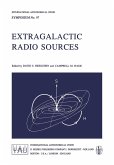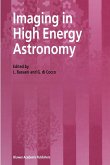The topics covered in this book include: Theory of Scattering and Scintillation, Distribution of Scattering Material, Intra-day Variability, Pulsars and their Magnetospheric Structure, Polarization of AGN, Interplanetary Scintillation, and Future Highly-Sensitive Radio Telescopes.
The introductory papers emphasize the essential properties of diffractive and refractive scattering, how they differ in temporal and frequency structure, and what they reveal about irregularities in the ISM. Pulsars can be examined in a number of different ways as a function of frequency: time variability (both short and long term), DM changes, pulse broadening, angular extent, and Faraday rotation.
Intra-day variable sources (IDVs) are another major topic of the book. Although many variable sources clearly exhibit intrinsic changes, IDVs are generally believed to result from scintillation effects. They require source sizes on the ten micro-arcsec scale, the most extreme cases having profound implications for source lifetimes and emission mechanisms.
Finally, a dozen contributions describe future large radio telescope projects, especially the Chinese FAST effort to build a 500 m spherical reflector of innovative design.
Hinweis: Dieser Artikel kann nur an eine deutsche Lieferadresse ausgeliefert werden.
The introductory papers emphasize the essential properties of diffractive and refractive scattering, how they differ in temporal and frequency structure, and what they reveal about irregularities in the ISM. Pulsars can be examined in a number of different ways as a function of frequency: time variability (both short and long term), DM changes, pulse broadening, angular extent, and Faraday rotation.
Intra-day variable sources (IDVs) are another major topic of the book. Although many variable sources clearly exhibit intrinsic changes, IDVs are generally believed to result from scintillation effects. They require source sizes on the ten micro-arcsec scale, the most extreme cases having profound implications for source lifetimes and emission mechanisms.
Finally, a dozen contributions describe future large radio telescope projects, especially the Chinese FAST effort to build a 500 m spherical reflector of innovative design.
Hinweis: Dieser Artikel kann nur an eine deutsche Lieferadresse ausgeliefert werden.








